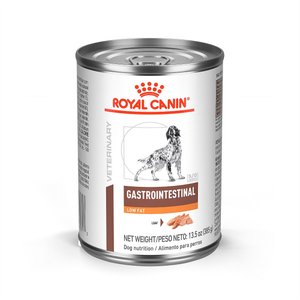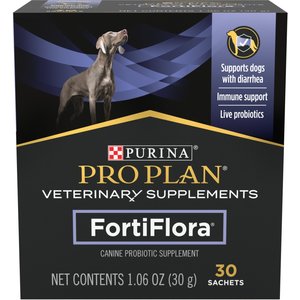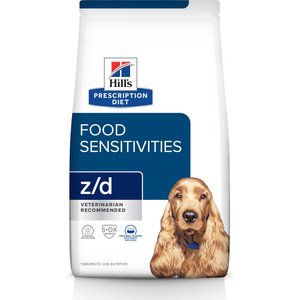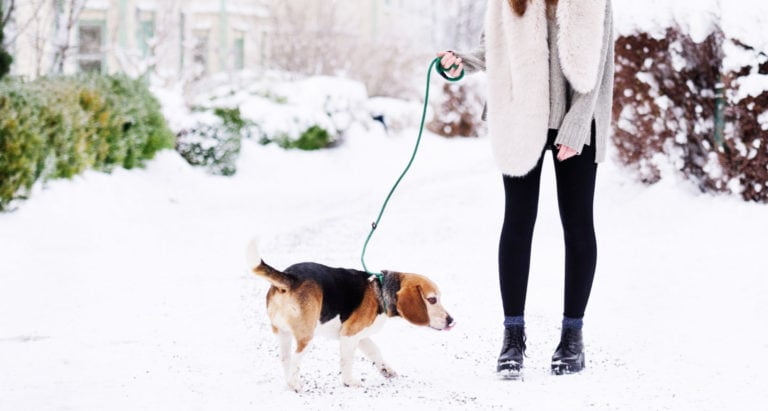Dog diarrhea is the pits. As a pet parent, you can feel quite helpless watching your best friend struggle, when all you want to do is help. If you came to me looking for help for your dog with diarrhea, here is what I would say.
Did He Get Into Anything?
Let’s face it: a dog’s gastronomic habits are gross. They will roll in and eat just about anything, and the riper or more foul it is, the more they like it. Growing up, I had some backyard ducks, and my little dog Molly thought it was the bee’s knees to go out and roll in and snack on their poo.
Dogs can often have one or two bouts of diarrhea after eating something they shouldn’t (e.g., getting into the garbage) and then recover without incident. However, it is time for veterinary intervention if the dog has diarrhea with these characteristics:
- Continues beyond one or two bowel movements
- They are also vomiting
- They are acting sick, feel warm or are not eating
- If the diarrhea waxes and wanes
- They are losing weight
Call Your Veterinarian to Determine the Cause
There are many causes of dog diarrhea. Some of the more common causes include:
- Dietary Indiscretion
- Intestinal Parasites
- Viruses
- Bacterial Overgrowth
- Change in Diet
- Inflammatory Bowel Disease
- Cancer
- Stress
- Hormonal Disorders
- Digestive Enzyme Deficiencies
To help your veterinarian figure out what may be causing the dog diarrhea or puppy diarrhea, is it helpful to know the following information:
- What brand of dog food you feed
- If you have changed the diet recently
- If your dog is on any heartworm prevention (which is also an intestinal dewormer)
- Your dog’s vaccine history
- Any other tests or treatments that have been performed.
Your veterinarian will also use this information to design a treatment plan if your dog has diarrhea.
When you go in for your appointment, be sure to bring a fresh fecal sample. Your veterinary care team will take the sample, run it through some testing and view it with a microscope. Feces has a lot of information—it can tell your veterinarian if there is any blood in the stool, if there are parasites, if your dog has been eating grass, and what the intestinal gut flora looks like.
Not sure whether to see a vet? Use PetMD’s Symptom Checker. Answer a few questions about your pet’s symptoms, and the vet-created online tool will give you the most likely causes and next steps.
What to Give a Dog With Diarrhea
For most uncomplicated cases of acute dog diarrhea where the dog isn’t acting sick other than having diarrhea, the treatment I prescribe is pretty simple and conservative. I start by switching the dog to a bland diet, such as Hill’s I/D or Royal Canin Gastrointestinal Low Fat from the Royal Canin dog food line. I ask the client to feed the bland diet for 5 days after the diarrhea has resolved, and then slowly transition the dog back to his regular food by mixing the bland diet with the regular diet over 4 days.
Besides a new diet, what you should give a dog with diarrhea is a probiotic, like Fortiflora or Proviable. If the dog has a bacterial overgrowth or a bacterial infection, I will prescribe antibiotics. Intestinal flora, otherwise known as the microbe, along with immune tissue in the gut called GALT, is a major center of immunity in the body. Probiotics, which I also call the bacterial good guys, support this gut immunity and outcompete the bacterial bad guys, like Salmonella or E. Coli. So as part of therapy for routine, uncomplicated dog diarrhea, I ask the client to give the probiotic for a minimum of 10 days. If the dog doesn’t have a good history of deworming, I will also prescribe a dewormer to cover any intestinal worms that could be causing the dog or puppy diarrhea. Hookworms and roundworms are very common and also a human health concern.
If the initial treatment isn’t working, or the dog is sick, then I recommending additional testing or treatments as clinically indicated. For example, in puppies or dogs without a proper vaccination history, I will run a Parvo test. If I suspect a food intolerance or ingredient allergy, I may put the dog on a hypoallergenic therapeutic diet for a minimum of 2 weeks to see if the dog or puppy diarrhea resolves. I may also run bloodwork, additional fecal tests, or order an abdominal ultrasound as necessary, and will prescribe treatment that is based upon the dog’s history, physical exam and lab tests.
Share:















